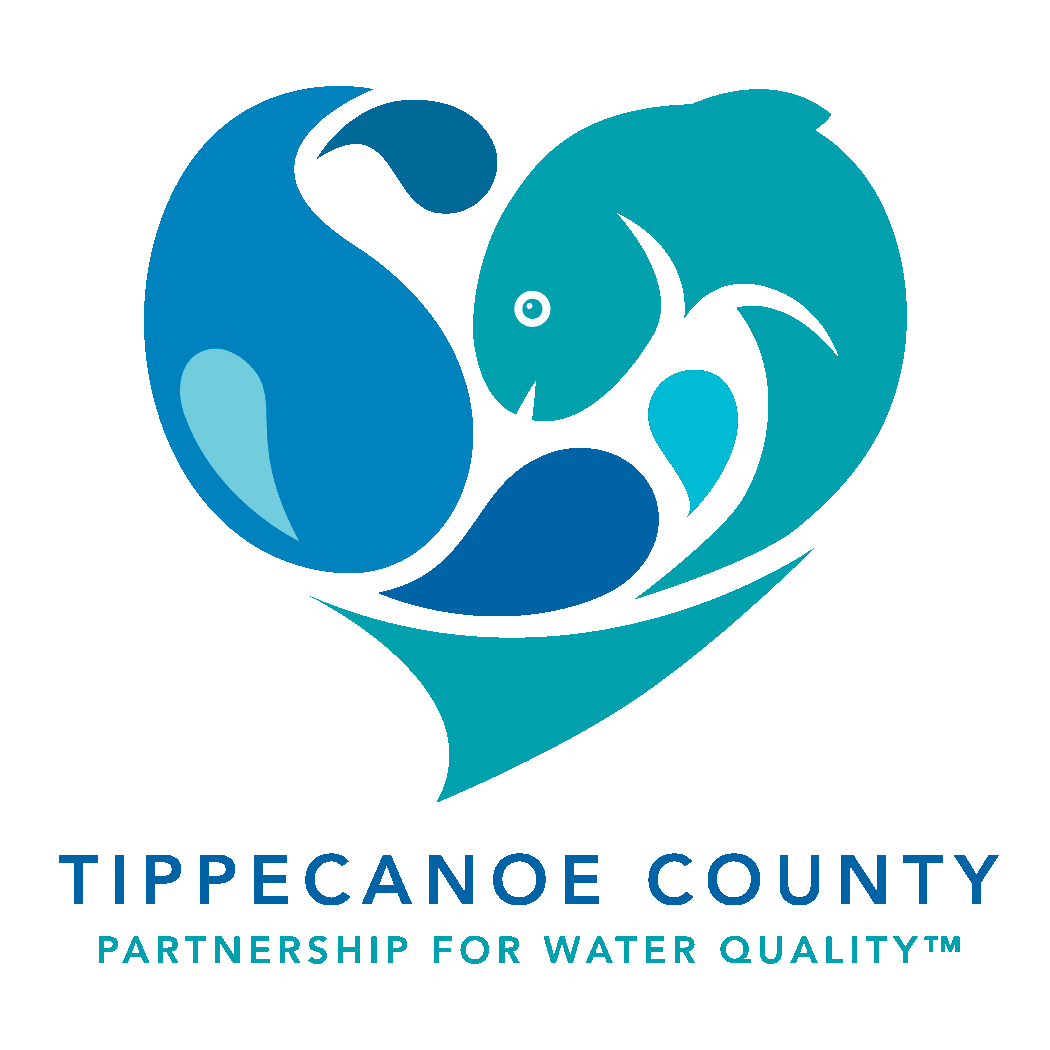Low Impact Development in Tippecanoe County

The Tippecanoe County Partnership for Water Quality (TCPWQ) is a coalition of local governments—Tippecanoe County, City of Lafayette, City of West Lafayette, Purdue University, Town of Dayton, Town of Battle Ground, and Ivy Tech Community College—partnering to satisfy and exceed the requirements of our National Pollution Discharge Elimination System stormwater permit. The Tippecanoe County Drainage Board has established a standard for channel protection and water quality protection (under the Comprehensive Stormwater Ordinance of Tippecanoe County 2017-04-CM), which can be satisfied though a variety of methods broadly categorized under two general approaches: conventional and low impact development (LID).
Conventional development strategies consider stormwater as a secondary component of site design, usually managed with “pipe-and-pond” systems that collect stormwater and discharge it away from where it fell. Alternatively, Low Impact Development incorporates the existing hydrology into the site design.
While both approaches are acceptable, the conventional approach is by far the most commonly selected. However, conventional development creates a lot of runoff—and the issues associated with runoff—because of the amount of impervious surfaces, large-scale turfgrass landscaping, modification of soil or slope, and changes to natural features like meadows, wetlands, farm lands, and forests. This can stress retention ponds and other structural BMPs that are designed to centralize and treat stormwater from a large area. Knowing what we do about the impact of conventional development, the group will be looking at ways to incentivize a LID approach to make it more attractive or more economically feasible for developers to select.
